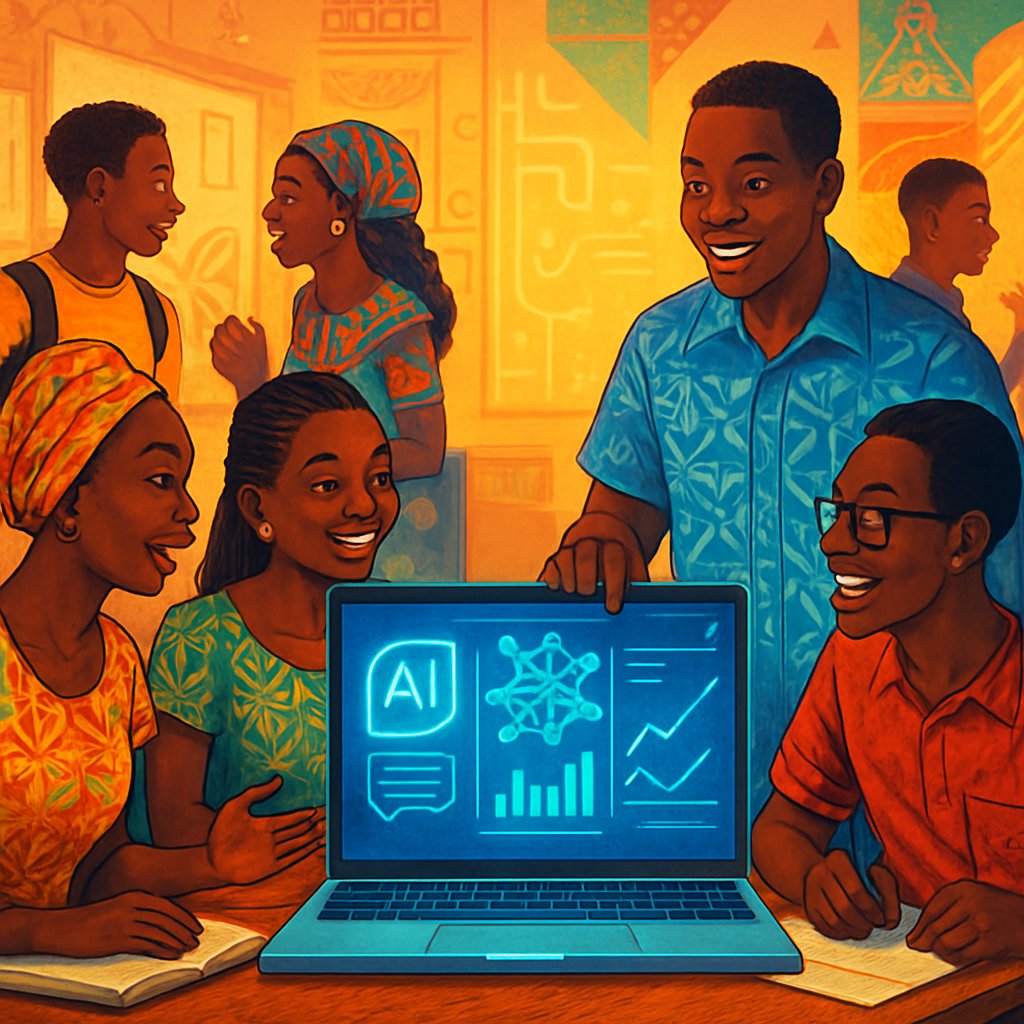Navigating the AI Landscape: How LLMs Are Shaping Career Guidance in African Computing Education
The world of career guidance is evolving rapidly, and in many parts of Africa, it's no longer just human advisors leading the way. Increasingly, students and recent graduates are turning to Large Language Models (LLMs) like ChatGPT for help with their career paths. But are these AI systems filling the gap effectively, or are they missing the mark in understanding the unique needs of African computing students? A recent study titled "Evaluating LLMs for Career Guidance" attempts to answer this crucial question by diving into the career competencies recommended by various LLMs across ten African countries.
Why Does This Matter?
Understanding how well LLMs respond to career guidance needs can significantly impact the future of computing education in Africa. The continent is home to a rapidly growing technology sector, and with it, a burgeoning demand for highly-skilled graduates. As LLMs become more common tools in educational and career planning contexts, it is essential to ensure that the guidance they provide is not only accurate but also contextually relevant.
This research sheds light on whether these AI-generated recommendations take into account the local needs, cultural contexts, and professional expectations unique to each country within Africa. Spoiler alert: the findings are both enlightening and a bit concerning.
Key Findings from the Study
1. The Models Analyzed
The study evaluated six LLMs: ChatGPT 4, DeepSeek, Gemini, Claude 3.5, Llama 3, and Mistral AI. Using the Computing Curricula 2020 framework as a guide, researchers analyzed the responses to standardized prompts regarding the necessary skills and competencies for entry-level computing jobs across ten diverse nations: Egypt, South Africa, Tunisia, Morocco, Nigeria, Senegal, Kenya, Benin, Ghana, and Zambia.
2. Technical vs. Non-Technical Skills
Interestingly, while all LLMs consistently mentioned core technical skills such as programming (especially in Python) and machine learning, they significantly varied in their coverage of non-technical professional skills. This became a pivotal point of discussion, underlining the importance of soft skills alongside technical competencies.
Strong Coverage of Technical Skills
- Python Programming: Mentioned in all models.
- AI/ML/NLP: Consistently highlighted across the board.
- Cloud Computing: While mostly referenced, some models displayed gaps in contextualized support for African infrastructure.
Gaps in Non-Technical Skills
The models varied greatly in their discussions of ethics, teamwork, and adaptability. For instance, while some outputs emphasized ethics and responsible AI use, others presented vague or generic suggestions that lacked in-depth context.
3. Contextual Awareness: A Mixed Bag
Contextual awareness—evaluating how well the recommendations reflect local realities—was a significant focus of this study. Here's what the researchers found:
- Open-source models (like Llama and DeepSeek) performed better in this aspect, often tailoring their responses based on local tech ecosystems and unique conditions, while proprietary models struggled to address specific national requirements.
- A shocking 35.4% contextual awareness average across all models, indicating a pronounced gap where many LLMs failed to recognize essential local elements like regulatory concerns or specific skill requirements.
4. Implications of Findings
The findings suggest that relying solely on LLMs for career guidance could propagate a one-size-fits-all approach that might overlook the unique opportunities and challenges within diverse African contexts. The lack of culturally relevant recommendations could mislead students about what is truly necessary for success in their local computing landscapes.
Navigating Towards Better Guidance
So, what can be done with this information? There is a clear pathway toward not only improving the guidance provided by LLMs but also enhancing their contextual responsiveness.
1. Hybrid Approaches
There's an opportunity for a hybrid model combining the technical prowess of LLMs with human insights from local experts. Educational institutions could utilize LLM-derived data to build a foundational understanding of global industry trends while tapping into local knowledge to ensure guidance relevancy.
2. Encouraging Open-Source Solutions
With open-source models showing better adaptability, there's a strong case to be made for African institutions to invest in these systems. Not only can they offer substantial cost savings, but they may also align more closely with local educational values and needs.
3. Collaborative Development
Involving local educators and industry professionals in the training and fine-tuning of AI models can further embed contextually rich content tailored specifically for African students. This collaborative spirit aligns well with African Ubuntu philosophy, which emphasizes communal values and collective development.
Key Takeaways
- LLMs are gaining traction: The rising use of AI tools like LLMs for career guidance signifies a shift in how students access educational support.
- Technical skills dominate: While technical capabilities are consistently addressed, the lack of focus on non-technical skills raises concerns about graduates' preparedness for real-world professional environments.
- Contextual awareness is limited: Most models struggle with local relevance, resulting in missed opportunities to address specific national educational contexts.
- Open-source models lead the way: They perform better in contextual awareness and adaptability, proving that they may be a viable solution for addressing African computing education needs.
- Hybrid solutions are key: Combining LLMs with human expertise can foster a richer, more relevant career guidance experience for students.
Final Thoughts
The integration of LLMs into career guidance is an exciting yet complex front in the field of education, especially in a rapidly evolving landscape like Africa's. How well these AI tools fulfill their potential will depend significantly on their willingness to adapt to, and grow from, local contexts. As this research demonstrates, the future relies on a collaborative approach, embracing technology while honoring the value of community and cultural context in career development.
In a world increasingly characterized by the intersection of technology and society, keeping the local needs of African students at the forefront will be crucial for effective and meaningful career guidance through AI. By embracing the strengths of both AI and local expertise, we can pave the way for a future where opportunities are equitable and prosperous for all.

